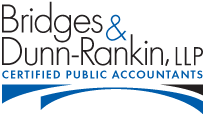Consolidated Appropriations Act of 2021
By Kenneth H. Bridges, CPA, PFS April 2021
On December 27, 2020, the Consolidated Appropriations Act, 2021 (CAA 2021) was signed into law. Below is a summary of the highlights.
PPP-funded expenses are tax deductible – For most small to midsize companies, the centerpiece of the CARES Act (Covid-19 stimulus legislation enacted in March 2020) was the Paycheck Protection Program (PPP), whereby a business could apply for an SBA loan equal to roughly 2½ months payroll and, so long as the proceeds were used for qualifying costs (basically payroll, rent, utilities and mortgage interest, with some limitations), the business could then have that loan forgiven. Congress made clear in the legislation its intent that this would essentially be a tax-free grant. That intent notwithstanding, the IRS issued a notice in April 2020 that it intended to disallow the deduction for expenses paid with PPP funds; which is essentially a backdoor way of taxing the PPP proceeds. In CAA 2021, in a big win for businesses, Congress overrode the IRS and made clear that not only is the loan forgiveness not taxable, but also the expenses paid for with PPP funds are tax deductible. Some, but not all, states have followed suit.
2nd Draw PPP – CAA 2021 provides for a 2nd round of Paycheck Protection Program forgivable loans (up to $2 million per borrower). The rules for this round are, for the most part (with a few exceptions), very similar to the rules for the first round of PPP loans; the most important exception being that in order to be eligible for this 2nd draw your revenue for at least one quarter of 2020 must have been at least 25% less than your revenue for the corresponding quarter of 2019. Originally, the deadline to apply for 2nd draw PPP was March 31, 2021, but Congress has recently extended that to May 31, 2021.
Employee retention credit – Included in the CARES Act in March 2020 was the employee retention credit (ERC) whereby an employer (business or nonprofit organization) whose business was partially or fully suspended by orders from a governmental authority due to the Coronavirus or who had a substantial (50%) decline in revenue due to Coronavirus could claim a refundable payroll tax credit of up to 50% of qualified wages paid between March 12, 2020 and December 31, 2020. For employers with 100 or fewer full-time equivalent employees (based on 2019 average), qualified wages included up to $10,000 per employee; regardless of whether they were able to work. For employers with more than 100 full-time equivalent employees, the amount was further limited to being only those employees who were unable to work due to the shutdown. Employers accepting PPP funds were not eligible to claim the ERC. Since the PPP was, in general, more advantageous, the ERC was largely overlooked. CAA 2021, however, provides that you can claim the ERC even if you accepted a PPP loan; just not for the same costs. CAA 2021 extends the ERC through June 30, 2021 (later extended to December 31, 2021 by subsequent legislation), reduces the definition of substantial decline in revenue to 20% (beginning with Q4 2020 when compared to same quarter of 2019), increases the credit amount from 50% of qualified wages to 70% of qualified wages (effective 1/1/21), and increases the limit on qualified wages (1/1/21) from $10,000 per employee in total to $10,000 per employee per quarter (with the wage limitation being based on amounts paid each specific individual, not by dividing total wages by number of employees). With these enhancements (including the later extension to 12/31/21), the credit for 2020 and 2021 combined can potentially be as much as $33,000 per employee.
Rebate checks to individuals – Under the CARES Act (March 2020), subject to income limitations (phaseout begins at $75,000 for individuals and $150,000 for couples), persons who could not be claimed as a dependent on someone else’s income tax return were eligible to receive $1,200 ($2,400 for couples filing a joint return) plus $500 for each child. CAA 2021 provides for an additional $600 per person ($1,200 for couples filing a joint return) plus $600 per dependent child, based on the same income limitations as those which applied for the first round of stimulus checks.
Kenneth H. Bridges, CPA, PFS is a partner with Bridges & Dunn-Rankin, LLP, an Atlanta-based CPA firm.
This article is presented for educational and informational purposes only, and is not intended to constitute legal, tax or accounting advice. The article provides only a very general summary of complex rules. For advice on how these rules may apply to your specific situation, contact a professional tax advisor.
